IN-DEPTH |
City Council members agree Springfield has needs, and that a new sales tax could help address them. Consensus remains elusive on which needs to address with a potential tax, and how such a tax would appear on ballots for voter approval.
More than two months since a ballot measure for a ¾-cent sales tax was proposed — to take effect following the expiration of a pension sales tax of the same value — council members' thoughts on the nuts and bolts of the tax(es) continue to differ.
With no further discussion on the topic having been held, Mayor Ken McClure doubts the City Council will reach a consensus in time for a tax to be voted on in the upcoming municipal election. A measure must be certified by Jan. 23 to make the April 2024 ballot.
“I think there's a consensus and an agreement that we need to do that as a community,” McClure said. “Where I don't sense the consensus are what the elements or the ingredients are of that tax.”
The Hauxeda spoke with eight of the nine members of the City Council, gauging support for a tax proposal, ideas for what expenses it should fund and where discussions go from here. The interviews showed:
- Council members (even those perceived as opposing a plan put forward this fall by Mayor McClure) share a general consensus — or at least willingness — to put a tax measure on the ballot, though some want revenues earmarked for specific projects and funding categories.
- Key differences emerge on how to present a proposed tax (or even whether to propose multiple, smaller taxes) and when it would make the most sense to bring the issue to voters.
- Most council members' ideas for use of a tax are primarily rooted in public safety, in fully funding the Police and Firefighters' Retirement System and in supporting initiatives included in the city's comprehensive plan, Forward SGF.
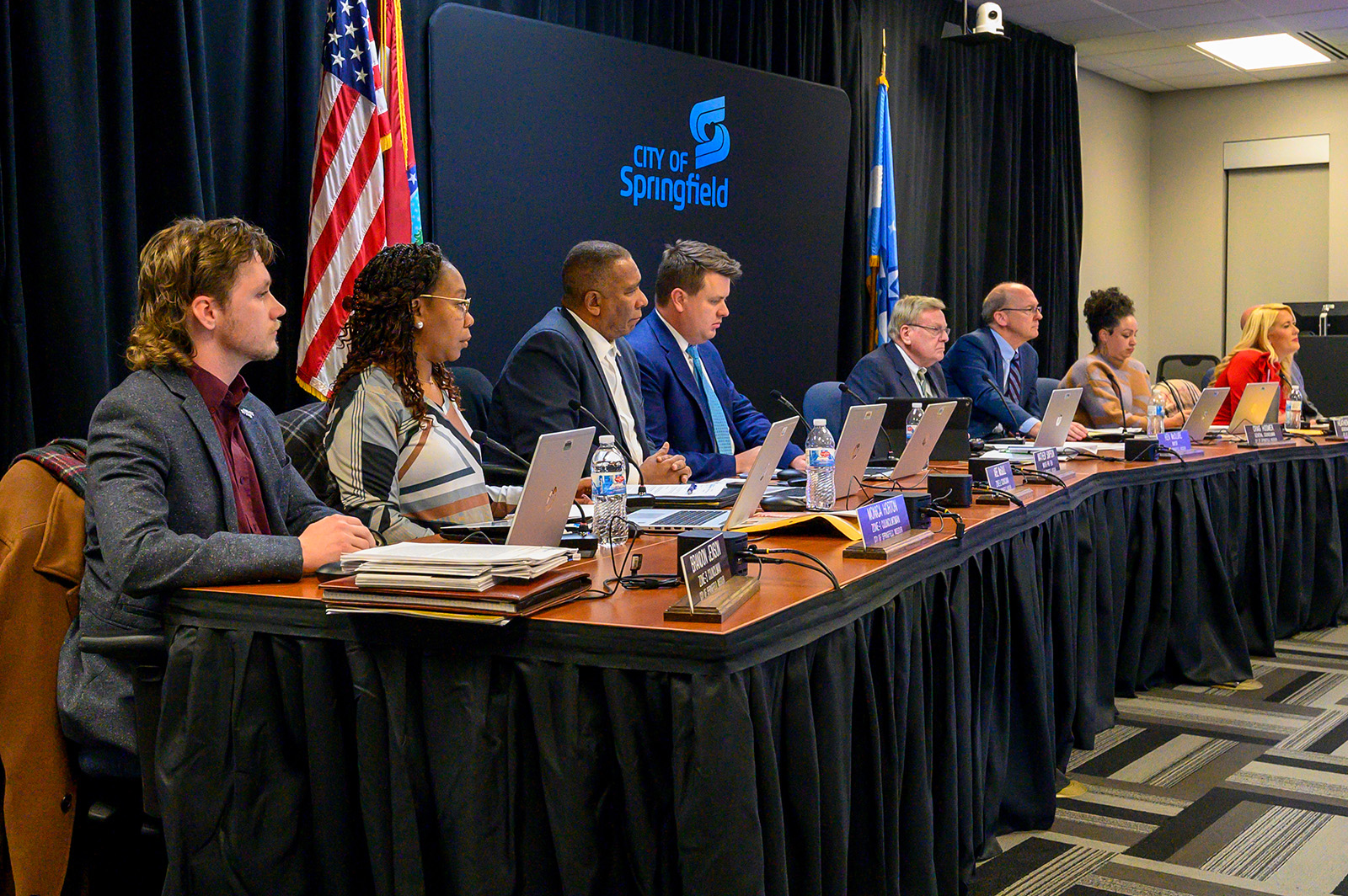
Background of the proposed tax
At a Sept. 29 council retreat, a ¾-cent sales tax was proposed as a means to pay for a wide range of needs across Springfield — including continuing to fund the Police and Firefighters’ Retirement System.
The proposed ballot language would put the tax into effect on April 1, 2025, a day after the existing ¾-cent pension sales tax will expire. That would keep the city’s 2.125% sales tax, and overall 8.1% sales tax rates the same.
Springfield’s pension sales tax was first voted through in 2009 to alleviate the financial problem a then-beleaguered employee retirement system posed. The tax was renewed for five-year terms in 2014 and 2019.
Closed to new hires in 2006, the pension system is now more than 90% funded. With a 2% annual increase over 20 years, a ¾-cent sales tax is estimated to bring in $45 million annually, well over the amount needed to maintain the pension fund.

The tax proposed on Sept. 29 suggests $3.5 million be paid into the pension for the first three to five years. Without a new or continuing revenue source, obligations to the pension would have to come from the city’s general fund.
In addition to fulfilling the city’s obligation to the pension, suggested funding categories of a new ¾-cent tax include:
- Crime prevention and fire protection initiatives;
- Investment in neighborhoods;
- Capital improvements, roads, bridges, sidewalks;
- Stormwater improvements;
- Investment in jobs and economic prosperity;
- Parks and trails;
- Beautification of public spaces;
- Facilities, vehicles, equipment;
- Operation and maintenance of city government facilities.
The proposed tax was suggested to be presented to the voters either on a 20-year term, or in perpetuity. The lack of consensus of the City Council jeopardizes the possibility that a tax measure will appear in the election of April 2, 2024.
The ballot language initially proposed reads:
“Shall the City of Springfield, Missouri impose a sales tax of three-fourths of one percent (3/4 percent) with proceeds from such tax to be used for crime reduction and fire protection initiatives; the remaining Police Officers’ and Firefighters’ Retirement System obligation; investment in neighborhoods; capital improvements, roads, bridges, sidewalks; stormwater improvements; investment in jobs and economic prosperity; parks and trails; beautification of public spaces; facilities, vehicles, equipment; operation and maintenance of City facilities; and with said tax to commence on April 1, 2025, and terminate twenty (20) years from the date of commencement of collection?”
Funding categories derived from surveys, Forward SGF
The proposed funding categories were determined through surveys that identified Springfield residents’ priorities, as well as the public engagement that went into the making of Forward SGF.
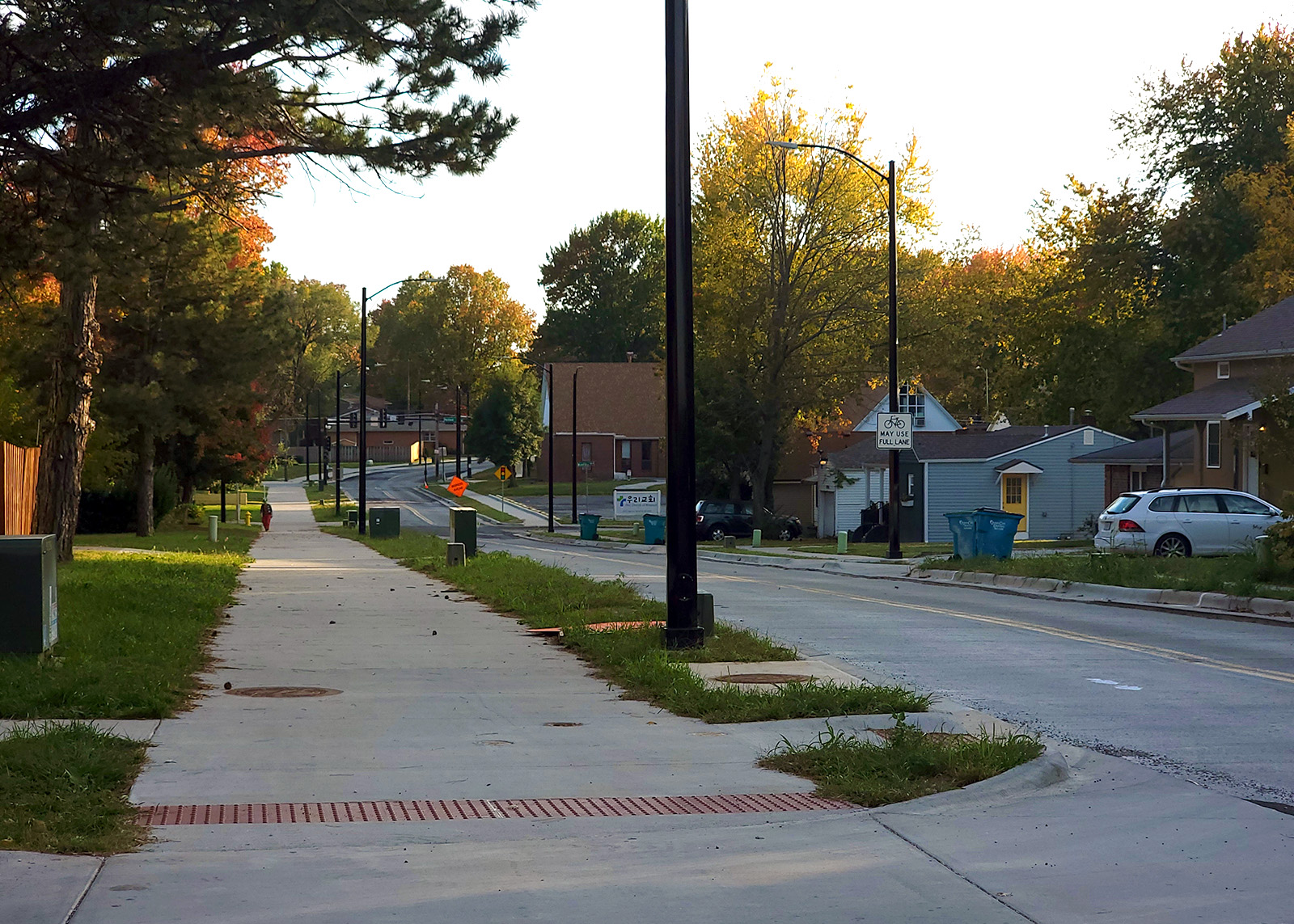
Pavement maintenance and traffic flow were the top two infrastructure categories of a long-term planning survey. Maintenance of city streets and infrastructure and quality of police protection were of the most importance in a community survey.
Respondents placed high priority on taking care of Springfield’s assets, government transparency and providing necessary tools for police, firefighters and the Public Works Department.
Half of the survey participants said Springfield’s government should spend more effort to make the city more attractive, with 54% of respondents wanting to see neighborhoods the focus of infrastructure improvements.
Quality, affordable housing, economic development and job growth, and parks, trails and open spaces were given the most weight when it comes to development and land use.
Pension fund top of mind
The Police and Firefighters’ Retirement System — though mostly funded — remains a priority for city council members. Fully funding it is somewhat arbitrary, as the pension’s investments can fluctuate in value, and remaining members and their dependents retire, and eventually die.
“The city has honored its commitment and will continue to honor [it],” McClure said. “And the city will always have that obligation until it is fully funded, regardless of whether there's a tax in place, or regardless of whether that will have to come out of the city’s budgeted funds.”
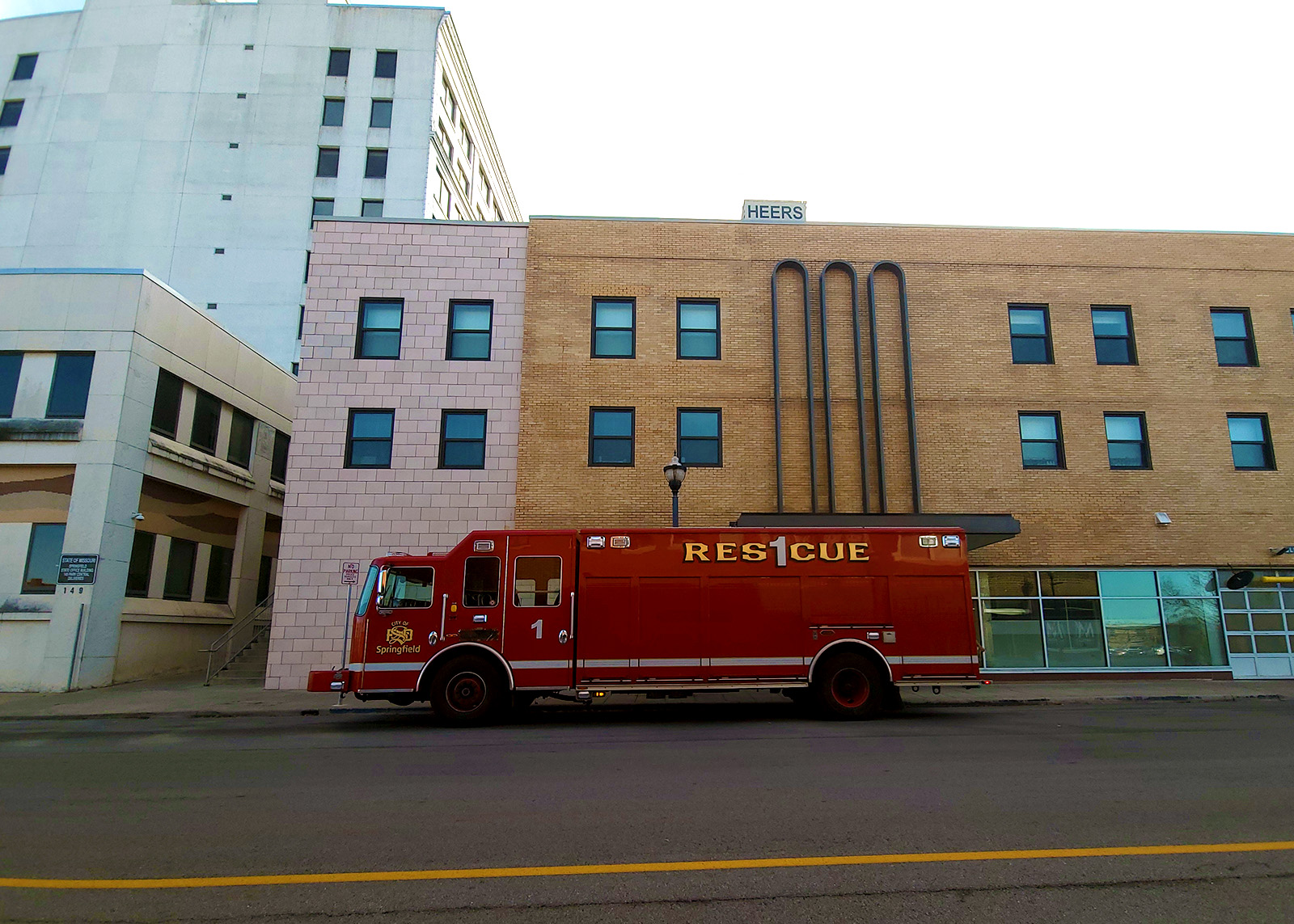
Zone 4 Councilmember Matthew Simpson, who serves as the City Council liaison to the Police and Firefighters’ Retirement System Board, said that while what has been done with the pension is a “real success story,” it remains “priority No. 1” in considering a new tax.
“The pension tax has succeeded in turning us from a plan that was on the brink of not meeting our promise to those who served our city as police and fire first responders, to one that is very healthy, [but] the job's not completely done,” Simpson said.
General Councilmember Callie Carroll says the city would not be able to fund the vision of Forward SGF without a new sales tax, and that funding the obligations of the pension without a new or continuing revenue stream could further strain the city’s general fund, and take away from existing resources.
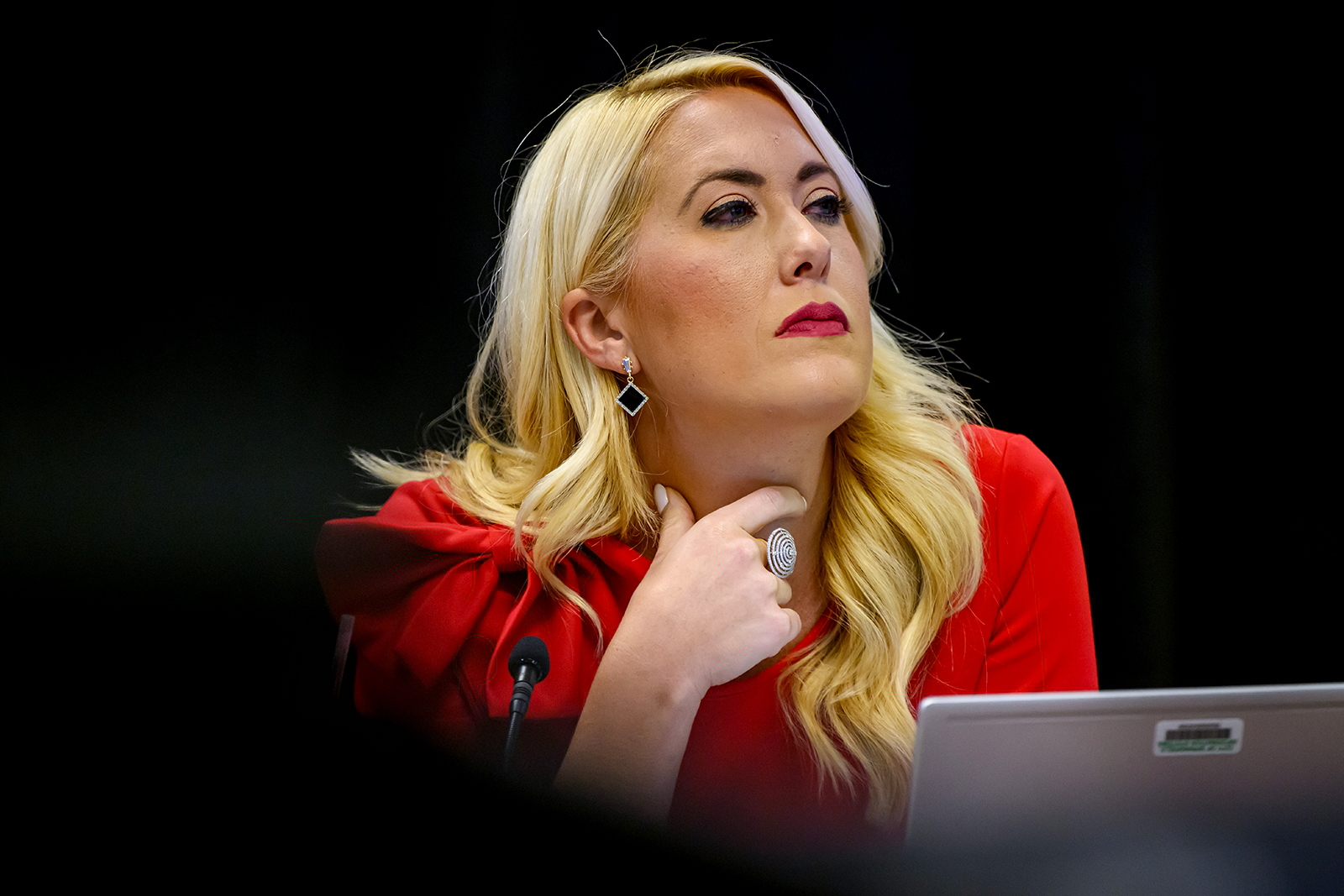
“We're not going to be able to do those things [in Forward SGF] if we don't get this passed,” Carroll said of the sales tax.
Barring an “economic catastrophe,” McClure is confident that the pension fund will continue to grow next year, which could boost the 91% figure before the existing sales tax expires.
Zone 3 Councilmember Brandon Jenson, however, is wary of the economic headwinds that could bring sales tax growth to “a more normal climate,” similar to the decline happening across Greene County. Jenson fears a drop in sales tax revenue growth could make future contributions into the pension even more painful if a new revenue source isn’t identified.
“While it's not a huge amount of our annual operating budget, that's $3 million to $6 million of something else that we wouldn't be able to fund — there's a very significant opportunity cost,” he said.
Although more conservative investments are being considered to ensure consistency and a high degree of certainty on costs moving forward, it may result in a lower return on investment, according to Simpson.
Mayor, council members weigh opportune election, voter support
When it comes to elections in 2024, April is likely not the first — and certainly not the only — month that might come to mind.
However, City Manager Jason Gage cautions against adding a potential tax measure to the August primary or November general election ballots.
“We believe ‘24 is going to be a pretty rough political year,” Gage said. “There's always a concern that local issues can get lost in that broader state and federal agenda, so typically, cities will try to avoid those timeframes, but it is an option.”
In agreement with Gage, McClure has all but ruled out August and November in 2024, and sees April 2025 as the next viable option if the City Council is unable to get a tax measure on the April 2024 ballot.

“Municipal issues tend, many times in those heavily contested partisan elections, to get lost in the shuffle,” McClure said. “So I would not be a fan of taking a local measure to the ballot in a strongly contested partisan election.”
Though McClure acknowledged a consequence of putting a proposal on the April 2025 ballot would be a lag period before any money would be collected, he said it would be “very manageable.”
In addition, four City Council seats and the mayor’s seat will come open in April 2025, which could be consequential — for better or worse — for a tax measure.
“I won't be on that ballot… but if I were, would I want to run with that? Is that an asset or not? I think it would be an asset,” said McClure, who is term-limited in 2025.
Why the winter rush ahead of 2024?
As to why the City Council wasn’t discussing a new sales tax prior to the retreat, McClure said that the group wanted to adopt Forward SGF, complete the community surveys, see the results of a housing study and consider the most up-to-date information on the status of the pension fund.
While Jenson is respectful, however dubious, of the impact of national elections on local ballot measures, he said it ultimately came down to the structure of the tax proposal and a “strong education campaign.”
“I believe that the greater the level of citizen participation, the better, even if that means that a tax proposal fails,” Jenson said.
Though conceding that a more partisan election could pose a challenge in getting a message across to voters, General Councilmember Craig Hosmer is also not opposed to a bigger turnout deciding the fate of a potential tax, adding that he thinks voters are “smart enough.”
“If people in the city vote for it, we should let them vote, and not worry about how are we going to get our message across because I think it's a good package, people will support it,” Hosmer said.
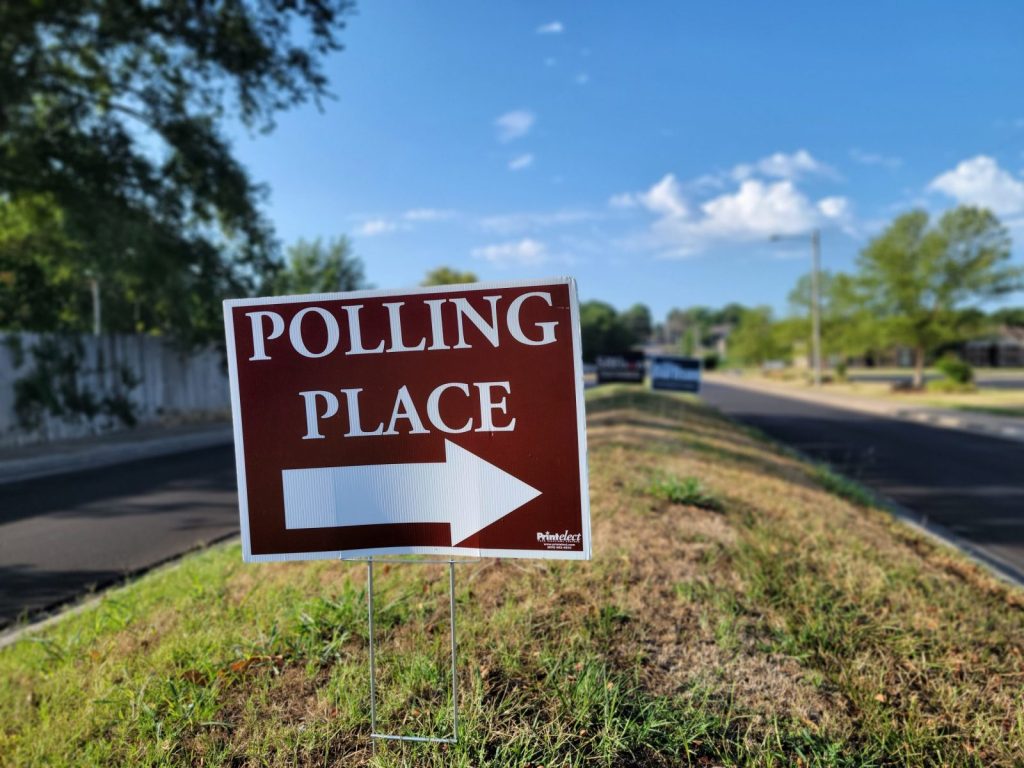
While Zone 2 Councilmember Abe McGull thinks the sooner the City Council is able to get this on the ballot, the better, he said that the November 2024 election could give all nine members the opportunity to “fully explore it” and build the necessary support among council members and the public.
“I think the citizens of Springfield understand that their tax dollars and investment into the community is important, and putting it on a November ballot is not necessarily a death knell,” McGull said.
While McGull wasn’t alone with his sense of urgency to get a tax measure on the ballot, council members emphasized the need to do it in a responsible manner voters could support.
“I’d rather do it the best way we can than do it the quickest way we can,” Simpson said.
Discussions have been deliberate
Though Gage is wary of the August and November elections in 2024, he noted that “time to think about it is not a bad thing.”
McGull would like to see the thinking take place in a City Council committee, as well as in the community. McGull suggested that the city provide additional surveys and public engagement opportunities focused on the proposed tax.
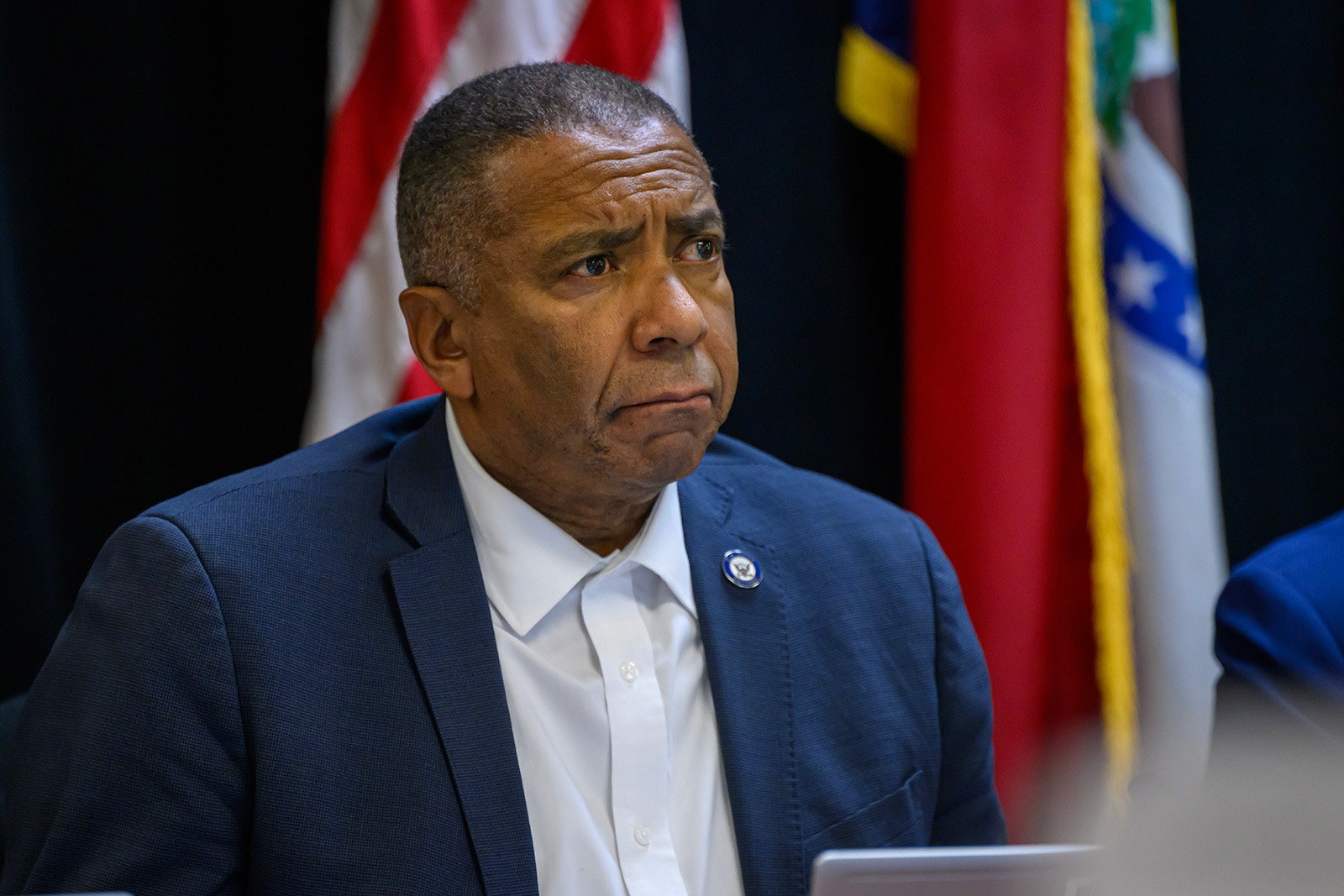
“Giving the taxpayers, or the citizens, an opportunity to see what ideas that we may have specifically now for this particular line item, I think helps,” McGull said.
Even so, McGull, along with many of the council members, pointed to the vision laid out in Forward SGF as a tool to help craft a tax measure.
“That's a document that represents the hopes and dreams of the thousands of Springfieldians who contributed in a real meaningful way in creating the plan,” Simpson said. “But also lays out a roadmap that includes the need for capital investments, both large, transformative capital investments and neighborhood-scale transforming capital investments to achieve the plan that we don't have a revenue stream to pay for now.”
Councilmember Monica Horton suggests the proposed sales tax be named the “Forward SGF Sustainability Sales Tax,” which envelops much of the drafted ballot language.
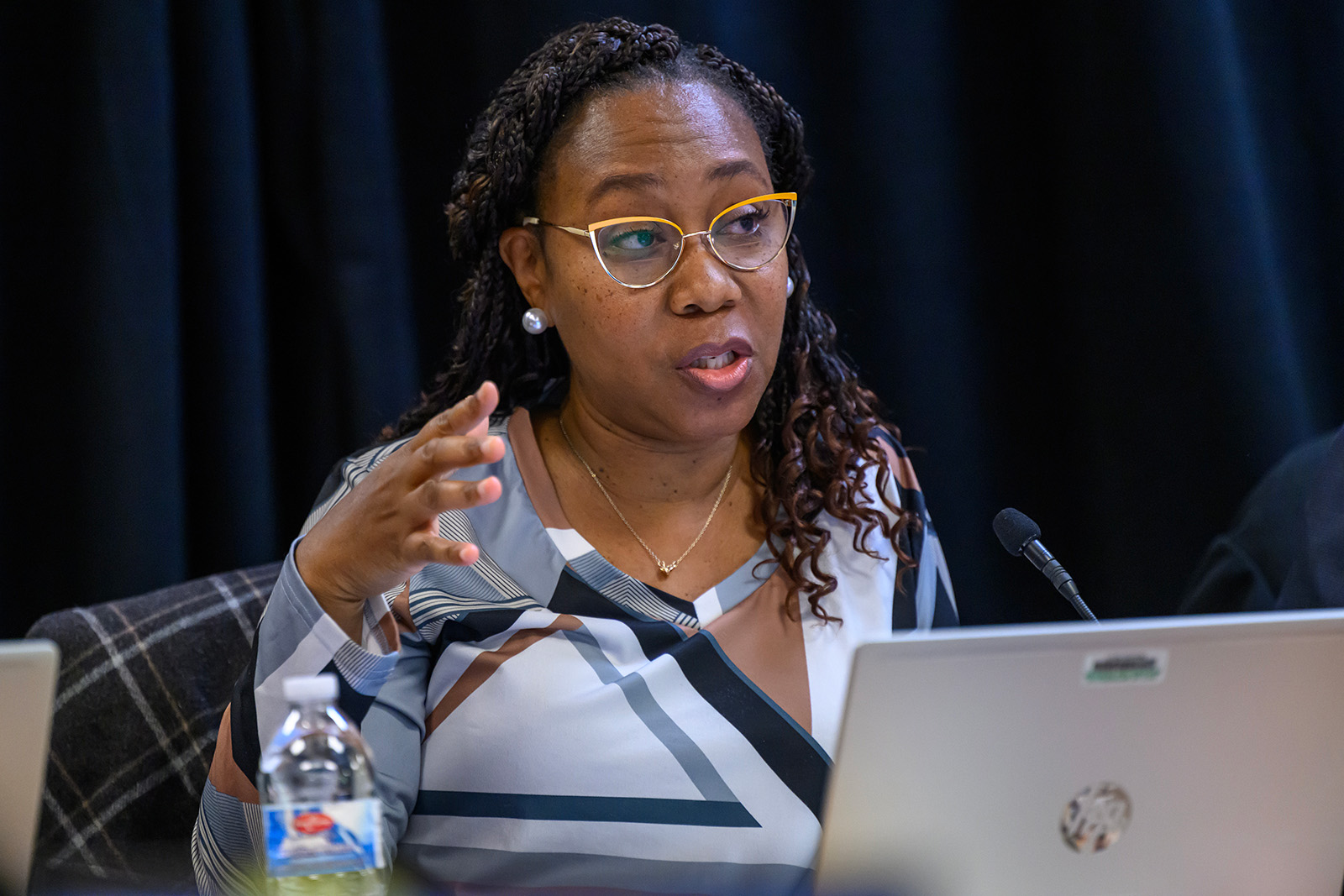
Outside of one-on-one conversations between council members, there have been no additional meetings held regarding the tax since the September retreat. Several council members expressed an eagerness to get back to the drawing board, to use their shared interests to find common ground.
Simpson said that the City Council needs to consider how to prioritize projects in further discussions, and has an opportunity to work with the community to identify “both transformative and neighborhood impacts.”
At the Dec. 11 City Council meeting, McClure said he had instructed city staff to arrange a meeting to further discuss the tax proposal, though he had hoped to receive feedback from council members. The topic will likely come before the Committee of the Whole, a committee comprised of the entirety of the Springfield City Council.
City Council generally in support of a tax measure, differ on details
The election in which the measure might be voted on is only one point of disagreement. While council members have expressed support to get a tax measure of some form on the ballot or, at the very least, a willingness to, consensus on the specifics is harder to come by.
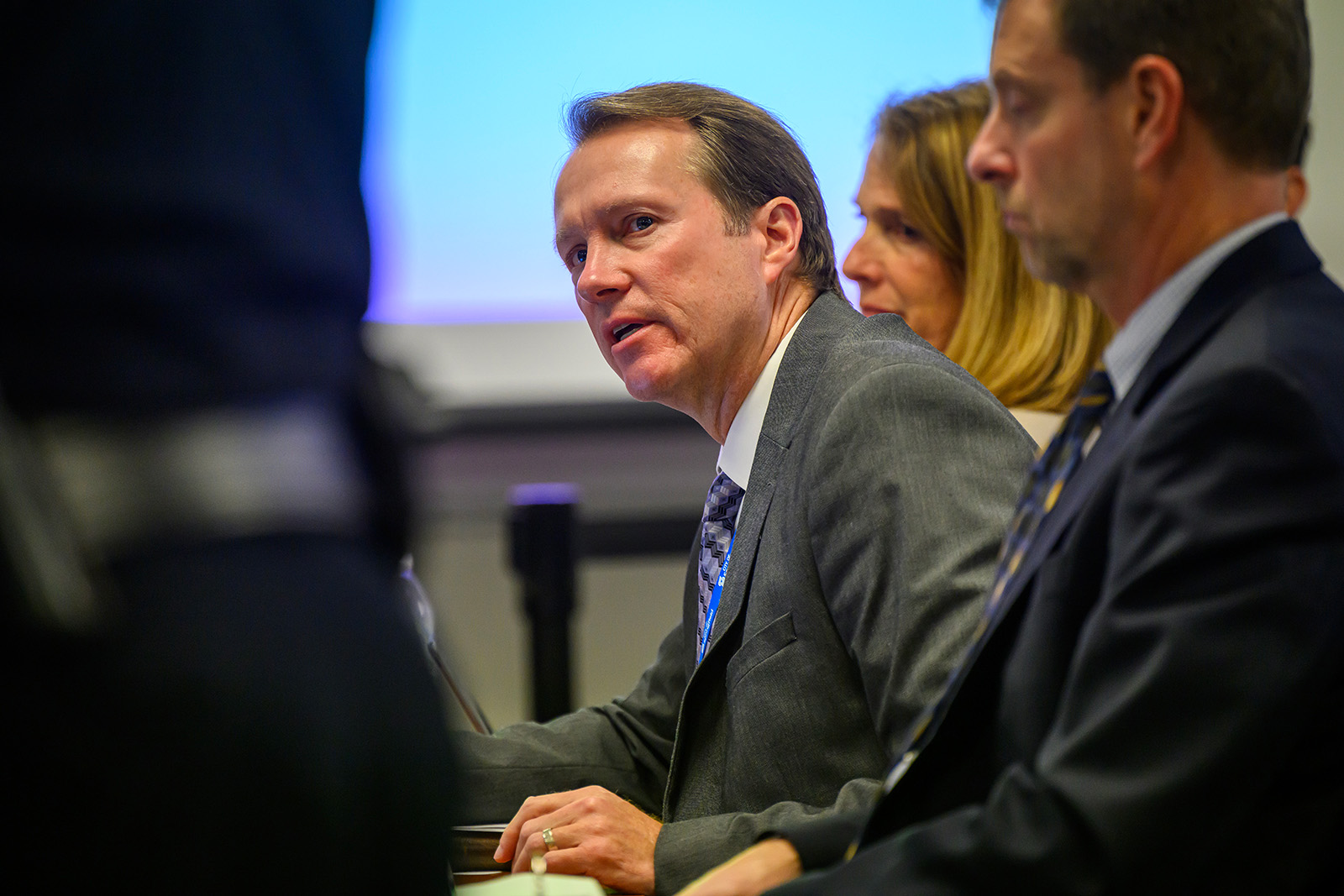
Gage said he anticipated council members to have conflicting thoughts on the proposed ballot measure, adding that they had a responsibility to determine the funding categories and the flexibility to modify the uses.
“There's a lot of things for them to be thinking about, it's a pretty comprehensive thing,” Gage said.
While council members’ thoughts on what tax revenues should fund overlap in many areas, differing priorities and ideas on how to pitch them in the ballot language leave ground to be covered to reach consensus.
For example, while Hosmer emphasizes the need for potential revenues to fund public safety and address poverty and homelessness, he said that parks shouldn’t be included in a potential tax, but not because he isn’t a fan of them.
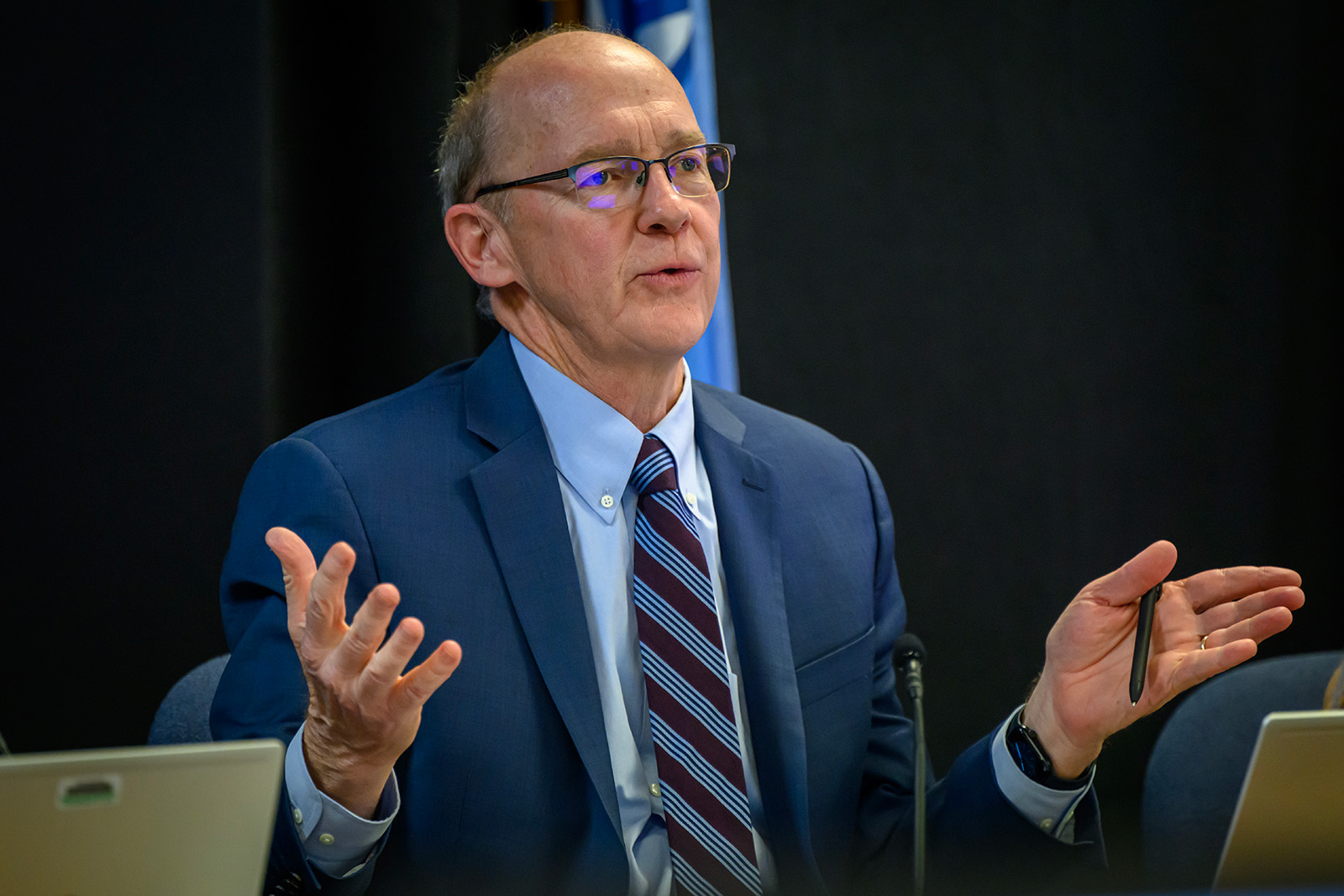
The expiration of an ⅛-cent Park Sales Tax in 2012 has since left the parks system “underfunded.” Hosmer would like to see that tax restored, rather than for parks funding to be covered with a ¾-cent tax.
“I think if we try to do it with this, then I think you're trying to just offset what we should be doing with parks anyway,” Hosmer said. “Looking at to what extent, if approved, this particular tax would address, of course, our housing shortage as well as looking at home ownership.”
Alignment, intent and specifics in writing
Horton said she supports the funding categories presented to the City Council, stressing the importance of investments in housing and neighborhoods, in particular.
“At a base level, looking at our Forward SGF planning, what's been proposed in the ballot language, it's pretty well aligned,” Horton said.
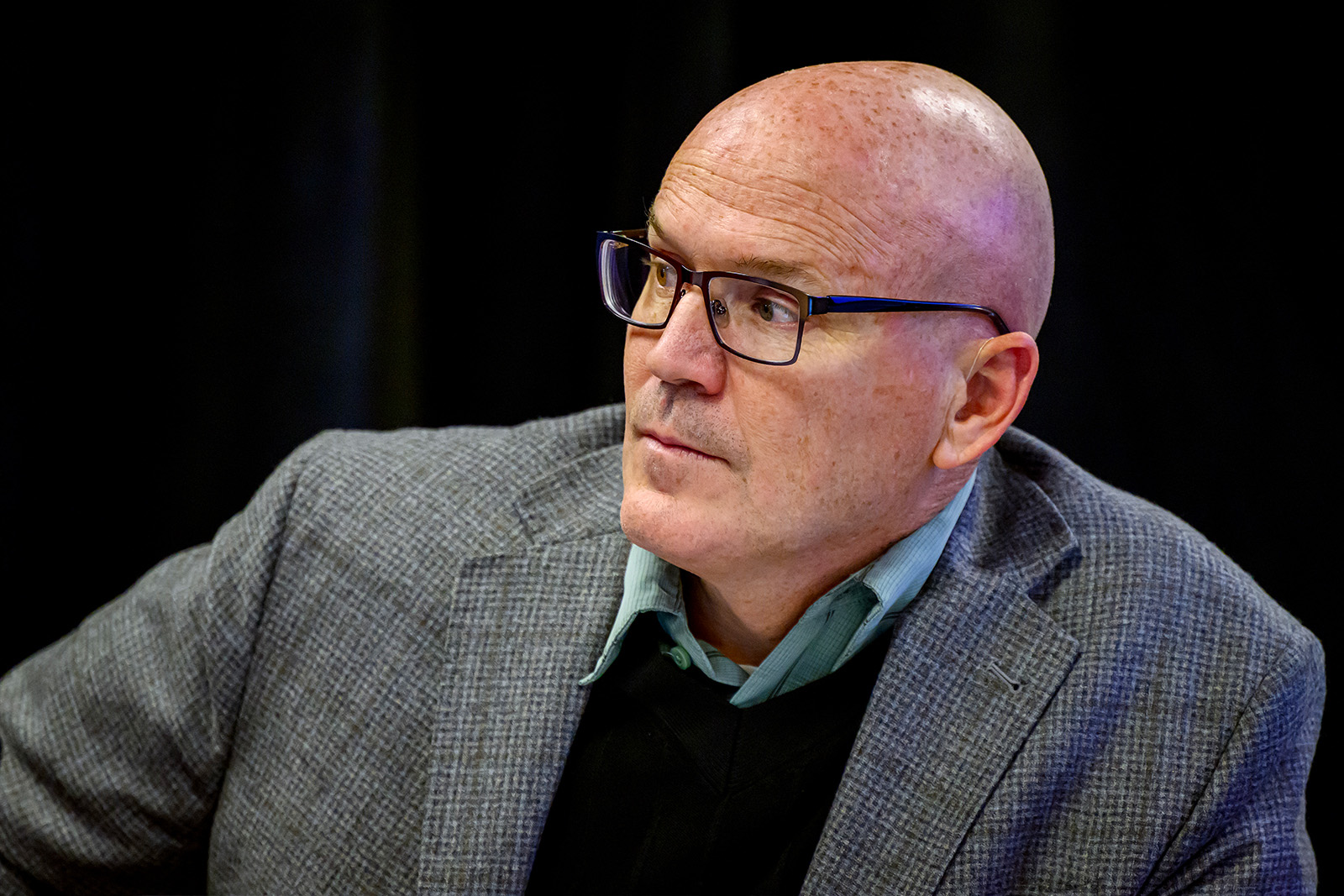
On the other hand, General Councilmember Derek Lee said a tax proposal needs to be specific to have any chance of being passed, and that the initially proposed ballot language reads as though the city just wants to increase the amount of money in its general fund.
“This is very, very broad,” Lee said, referring to the tax proposed at the retreat. “So we could spend $40 million on the stormwater infrastructure and $5 million on everything else.”
Lee would rather see a tax measure outline the specific initiatives it would fund, pointing to the Lake Springfield plan, the unearthing of Jordan Creek and improvements to Interstate 44 as examples of projects he could get behind.

“I just think the overall direction needs to be specifically focused with, where we tell people, ‘This is what we're going to spend the money on,’” Lee said.
Similarly, Hosmer wants a tax measure to have “parameters of where that money goes,” and spell out what services revenues would provide for.
“I think it would be probably supported by the voters if we build it the right way,” Hosmer said. “And I don't think that's too hard to do.”
Three ¼-cent sales tax and bond measures?
In prioritizing transparency, Jenson envisions an approach similar to one taken in Oklahoma City — a series of taxes tied to specific projects and funding categories.
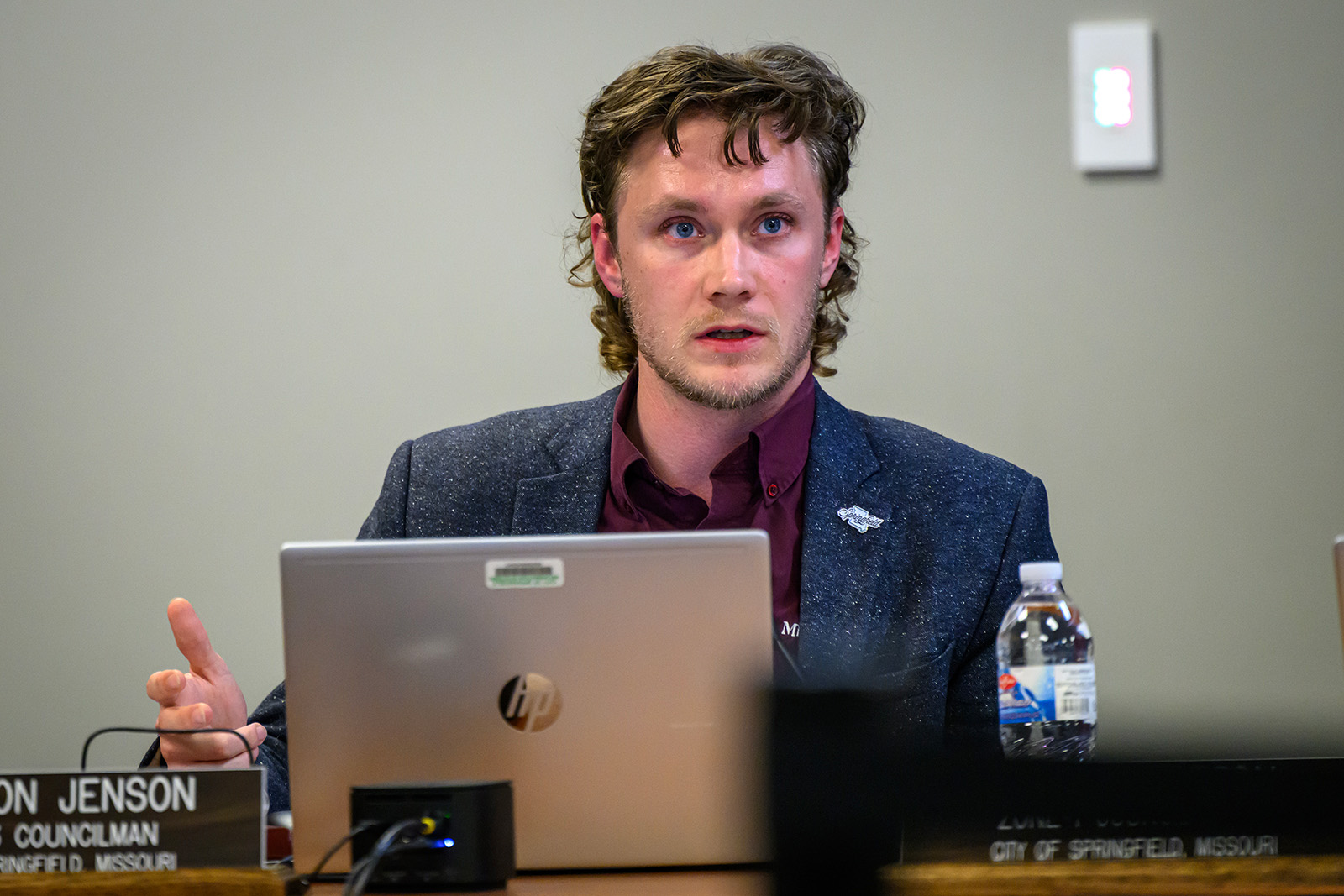
Rather than propose a ¾-cent sales tax, Jenson suggests the City Council consider three ¼-cent sales taxes and accompanying bond measures. Jenson proposed each tax to fund transportation, public safety and parks and stormwater.
Jenson suggested a transportation sales tax cover improvements not only to the city’s roads, but the trail network and the transit system. The public safety tax — the only of the three Jenson would not like to have a sunset on — would encompass continued contributions to the Police and Firefighters’ Retirement System, as well as other needs for the Springfield Police Department and the Springfield Fire Department. Lastly, Jenson suggested at least half of the third tax be allocated for “underfunded” stormwater needs, with the remainder available for the parks system.
Jenson argued that a series of smaller taxes, with sunsets tied to capital projects and a need to pay back bonds, provides transparency to voters and accountability for the city.
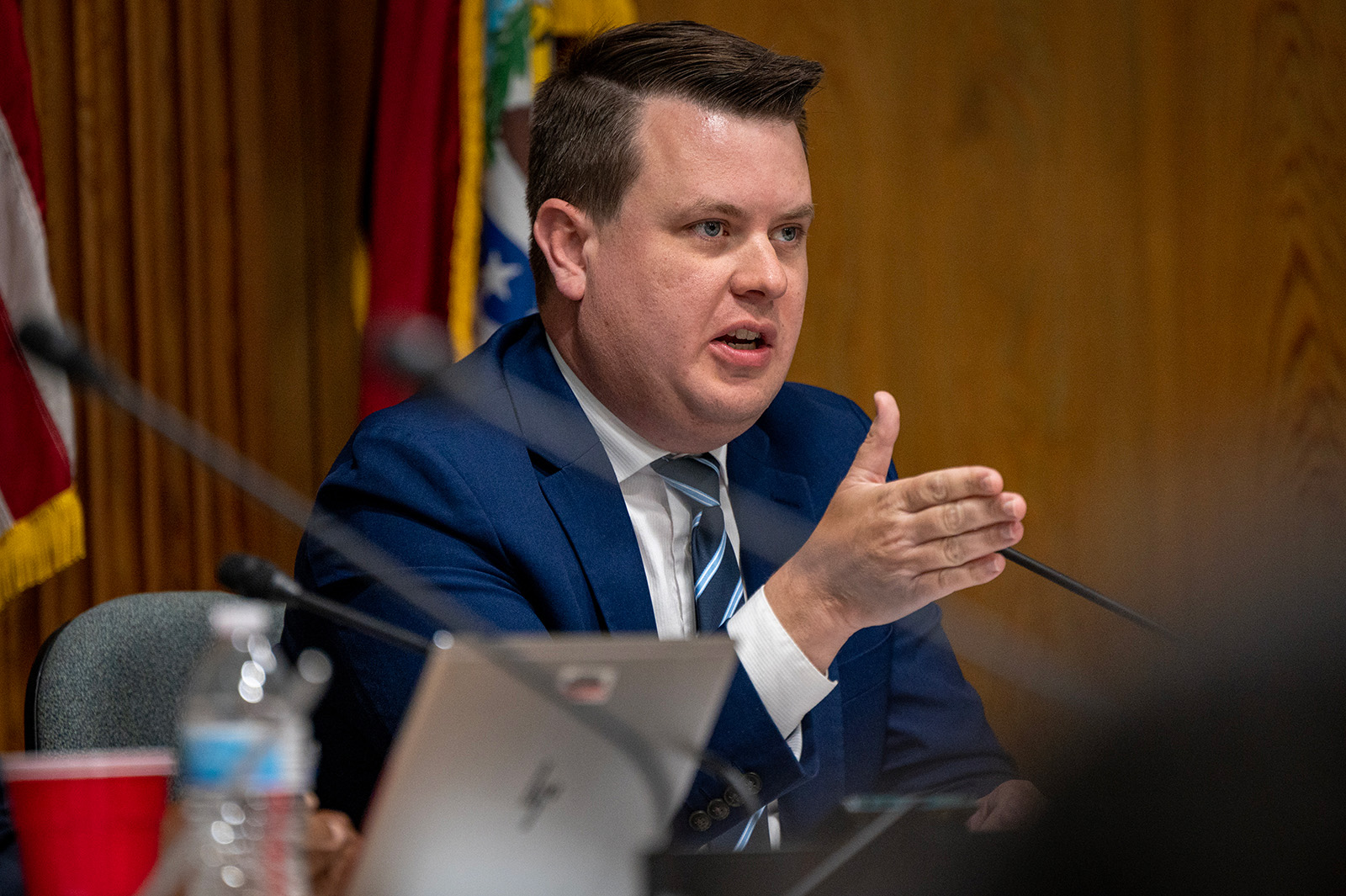
Simpson also emphasized the need for accountability, and to be able to show voters which projects would be prioritized. He added that the proposed set of funding categories was too broad, and suggested they be narrowed down into three “cornerstones:” the pension, public safety and the capital projects laid out in Forward SGF. McClure doubled down on those categories at the Dec. 11 meeting.
McGull envisions similar priorities. Beyond the pension, he wants to see the tax fund public safety, infrastructure needs and making Springfield an “attractive place for people to want to visit and live.”
Horton sees a benefit to keeping the ballot language broad, in that it could allow a “wide range of possibilities,” especially when it comes to investments in neighborhoods.
Councilmember Heather Hardinger did not provide comment by deadline.
Promise to voters brought into question
Former mayors Jim O’Neal and Bob Stephens raised concerns about the tax proposal in an opinion piece in the Springfield News-Leader, arguing a 20-year sunset would not allow voters to hold the city government accountable often enough. In acknowledging community needs and urging the city to provide “workable solutions” to voters, they notice a promise made to voters that the tax would sunset when the pension was fully funded. O’Neal and Stephens were mayors when the pension sales tax was first approved by voters and renewed for the first time, respectively.
McClure acknowledged the promise made to voters.
“In my opinion, we absolutely as a city have honored our commitment to the public and to the police and fire[fighters],” McClure said.
The proposed ballot measure would be an entirely new, general sales tax that would replace the existing ¾-cent pension fund tax, which is enabled through special legislation from the state government. McClure emphasized the need for an effective public information campaign to make that clear to voters.
Confidence in compromise
Though each council member envisions a different version of a tax — or taxes — they all expressed a desire to revive talks and find a compromise, even if that means making some concessions.
“I think that if we meet as a council and talk about this, we can figure this out,” Carroll said. “We all agreed on our council priorities, and those are the things that we want to fund.”
McClure derives hope in the consensus among council members that some form of a tax measure needs to be put before voters. Though he remains concerned about working through the details, McClure said “everything is on the table” for council members to reach a common ground.
“I'm all about compromise. That's how you get things done,” McClure said.
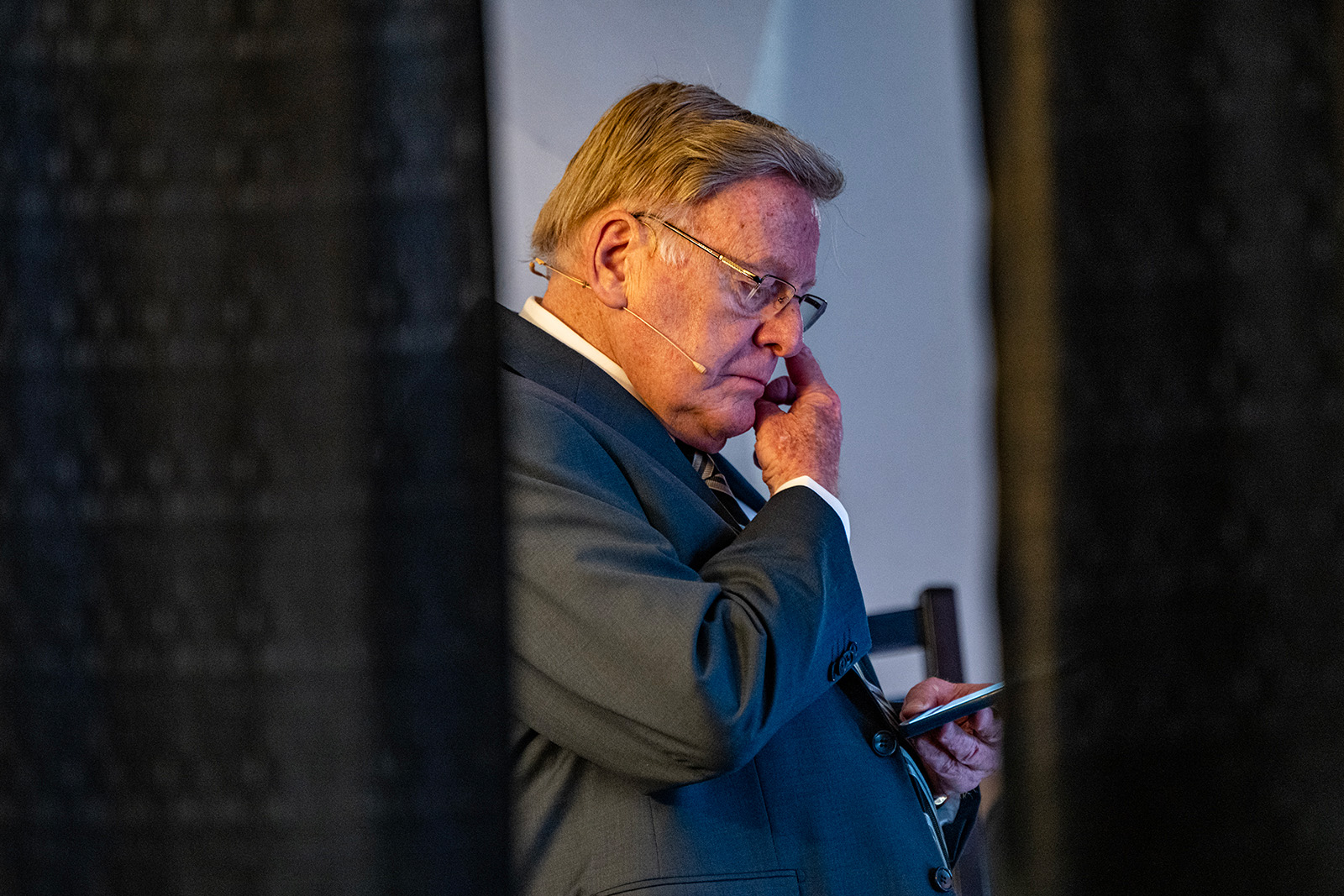
Jenson understands that his ideas for a handful of taxes and bond measures are just that — ideas — and that whatever council members agree to will likely look very different.
“I just think that we owe it to citizens to bring individual proposals forward and allow them to say these are the things that are or are not important to us,” he said.
Though McClure remains doubtful that the City Council can find consensus by the ballot certification deadline in January, he hasn’t ruled out the possibilities more discussions might yield.
“It's not beyond the reach that we can do that,” McClure said. “There is a pathway to get there for April [2024].”

